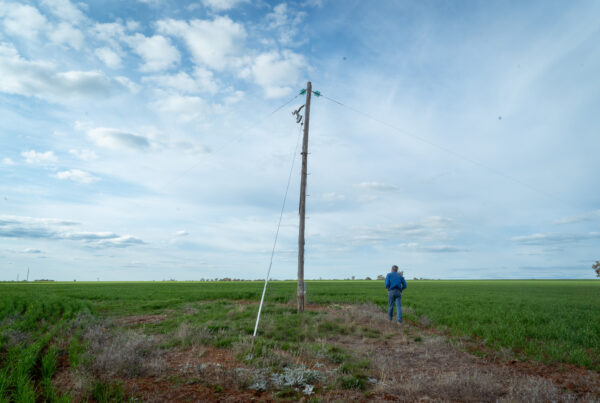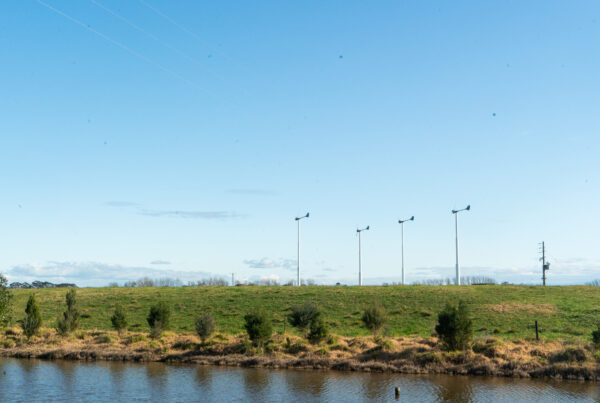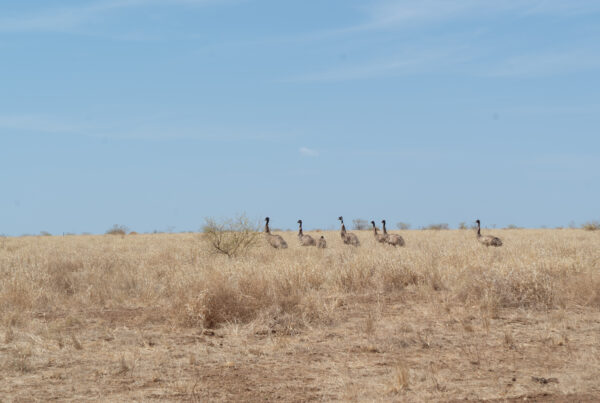11 October 2024
Farmers for Climate Action (FCA) appreciates the opportunity for continued consultation on the New Vehicle Efficiency Standards and is pleased to provide a submission on the proposed New Vehicle Efficiency Standard (Exempt Vehicles) Determination 2024.
Key Points
- FCA continues to welcome the Government’s plans to introduce New Fuel Efficiency Standards (NVES) for Australia as part of a broader electric vehicle strategy.
- On 31 January 2024, FCA submitted an open letter, signed by more than 800 people, to Minister Catherine King and Minister Bowen, calling on the Australian Government to establish strong fuel efficiency standards in order to bring more choice and affordability of electric vehicles (including farm utes) to our market.
- We refer to our previous submission on the New Vehicle Efficiency Standards – Cleaner, Cheaper to run Cars for Australia, and reiterate that strong fuel efficiency standards will deliver Australia and farmers better ranges of fuel-efficient cars, including electric vehicles, at lower prices, and the lower running costs of EVs will help regional Australians save money.
- FCA agrees with the proposal instrument to allow for an exemption on transitional vehicles, which do not have emission standards testing under the Australian Design Rules (ADR) until such a time that this testing is completed.
- The government should consider policy treatments such as financial compensation for primary producers where the cost of vehicles they have access to increases due to NVES.
About Farmers for Climate Action
Representing over 8,300 farmers and backed by over 45,000 supporters nationwide, Farmers for Climate Action seeks deep emissions reductions this decade to protect our farmers and our food supply. FCA is made up of farmers, agricultural leaders, and rural Australians who are advocating for strong economy-wide climate policies.
Exempt Vehicles
FCA considers the enhanced quality of vehicle choice an important benefit for regional Australians. The NVES will enable farmers and regional Australians to access the same variety of utes, 4WDs, and family cars as those living in the US, New Zealand and other countries, whether these are diesel, petrol, or electric vehicles. In our submission on the New Vehicle Efficiency Standard, FCA strongly endorsed the ‘Option B’ pathway proposed by the government for implementing the NVES. We welcome this approach, as it does not affect any vehicles currently on Australian roads. The pathway aligns with other economies and provides a phased lead-in time, allowing manufacturers, consumers, and operators to adapt to changing standards. The proposed exemption under Part 2, Section 6 of the Determination would ensure that vehicle efficiency standards are implemented in a timely manner without unduly burdening owners of vehicles that do not currently meet Australian Design Rules (ADR) on carbon dioxide emissions. The exemption timeframe is reasonable and ensures that non-compliant vehicles will be brought into compliance by the end of the calendar year following ADR testing. For large utes classified as NB1, FCA notes this compliance deadline is scheduled for 2026.
FCA is aware of concerns that the introduction of fuel efficiency standards may impact primary producers by reducing the range of commercial vehicles they have access to, and potentially increase the costs of vehicles for farmers. While FCA does not consider that these concerns will arise, we continue to encourage the government to consider policy treatments such as financial recompense. This, alongside implementation timeframes, will protect primary producers from undue transition costs in the event that the sector demonstrates a cost burden on farmers occurring from the NVES.
International markets that have introduced vehicle efficiency standards show that NVES will not drive up the cost of cars in Australia. Manufacturers are already producing efficient low—and zero-emission vehicles overseas. Requiring these vehicles to also be exported to Australia should not represent a significant change or burden on manufacturer costs and business models.
Farmers see the introduction of vehicle efficiency standards as a powerful instrument to help motivate global vehicle manufacturers to introduce cleaner and more affordable cars to the Australian market. The proposed exemption instrument being consulted on is in line with the ‘Option B’ pathway previously endorsed and ensures the timely introduction of NVES.
If there are any questions resulting from this submission please do not hesitate to reach out to myself, or Paul Stark, Policy and Farmer Engagement Officer, on the below contact details.
Yours sincerely,
Natalie Collard






